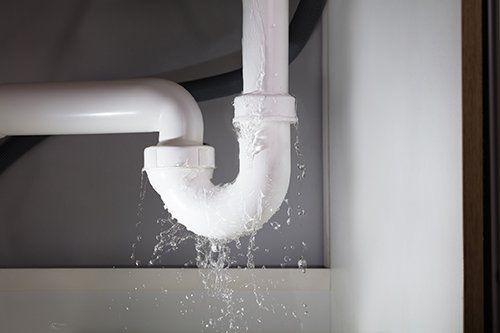The Home's Most Typical Leak Factors: Analysis
The Home's Most Typical Leak Factors: Analysis
Blog Article
The content below on the subject of Common Water Leaks In House is truly entertaining. Read on and make your own assumptions.

Leakages not just create waste of water however can also cause unnecessary damages to your home as well as advertise undesirable organic growth. By looking and also comprehending for daily scenarios that create leaks, you can secure your residence from future leakages and also unnecessary damage.
Instant temperature modifications.
Extreme temperature modifications in our pipelines can trigger them to increase and get suddenly. This development as well as contraction may cause splits in the pipelines, especially if the temperature are listed below freezing.
Corroded water supply
As time goes by, your plumbing system ages and also deterioration such as corrosion may start eating away the pipes. This may be the cause of discoloration or warping on your pipes. This asks for an assessment with your plumber immediately. If our plumbing system is old, take into consideration replacing the pipelines since they are at a higher threat of corrosion than the more recent models.
Malfunctioning Pipeline Joints
The factor at which your pipes attach is often the weakest web link in the waterline. Pipeline joints can weaken in time, resulting in water leakages. Unfortunately, the majority of pipe joints are not quickly visible. If you have noisy pipes that make ticking or banging sounds, specifically when the warm water is activated, your pipeline joints are possibly under a lot of pressure. It is a good idea to have your plumber examine your system yearly.
Intruding origins
Most water leakages begin outside the house instead than inside it. You might see damp patches or sinkholes in your yard, and also that might imply that tree origins are attacking water lines creating water to seep out.
Poor Water Connectors
At times, a leak can be brought on by loose pipes and pipelines that provide your home appliances. Usually, moving is what causes the loosened water Links. You could locate in the case of a washing equipment, a hose pipe may spring a leak as a result of shaking during the spin cycle. In case of a water connections leak, you may discover water running directly from the supply line or puddles around your home appliances.
Blocked Drains
Obstructed drains may be irritating and inconveniencing, yet they can sometimes wind up triggering an overflow causing rupture pipelines. Keep removing any materials that may decrease your drains pipes that can obstruct them to stay clear of such inconveniences.
All the above are sources of leaks but not all water leakages result from plumbing leakages; some leakages may originate from roofing system leakages. All leaks should be repaired promptly to avoid water damages.
Leaks not just create waste of water yet can also create unnecessary damage to your residence and advertise unwanted organic development. By looking and also understanding for daily circumstances that create leaks, you can protect your house from future leaks and also unneeded damages. Today, we will certainly look at six leakage triggers that might be creating your pipes to leak.
At times, a leakage can be caused by loose hoses as well as pipelines that supply your home appliances. In situation of a water links leakage, you might see water running straight from the supply line or pools around your home appliances.
How To Check For Water Leak In Your Home
How To Check for Leaks
The average household's leaks can account for nearly 10,000 gallons of water wasted every year and ten percent of homes have leaks that waste 90 gallons or more per day. Common types of leaks found in the home are worn toilet flappers, dripping faucets, and other leaking valves. These types of leaks are often easy to fix, requiring only a few tools and hardware that can pay for themselves in water savings. Fixing easily corrected household water leaks can save homeowners about 10 percent on their water bills.
To check for leaks in your home, you first need to determine whether you're wasting water and then identify the source of the leak. Here are some tips for finding leaks:
Take a look at your water usage during a colder month, such as January or February. If a family of four exceeds 12,000 gallons per month, there are serious leaks.
Check your water meter before and after a two-hour period when no water is being used. If the meter changes at all, you probably have a leak.
Identify toilet leaks by placing a drop of food coloring in the toilet tank. If any color shows up in the bowl after 10 minutes, you have a leak. (Be sure to flush immediately after the experiment to avoid staining the tank.)
Examine faucet gaskets and pipe fittings for any water on the outside of the pipe to check for surface leaks.
Undetected water leaks can happen without the home or business owner even realizing. If you suspect a water leak, but not able to find the source. It is time to contact a professional water leak detection service, The Leak Doctor.
How To Find a Water Leak In Your Home
https://www.leakdoctor.com/blog/How-To-Check-For-Water-Leak-In-Your-Home_AE197.html

Hopefully you enjoyed reading our section about Top Causes of Home Water Leaks. Thank you for taking a few minutes to read our piece of content. Sharing is caring. One never knows, you may very well be helping someone out. We take joy in reading our article about How to detect water leaks in your home.
Just a call away! Report this page